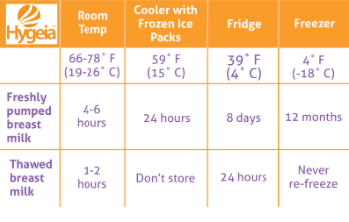
“It’s supposed to hurt.”
It’s one of the biggest breastfeeding myths! That’s not to say nipple pain is not a common hurdle for many new moms, sometimes hindering the establishment of a successful breastfeeding journey. Don’t let discomfort deter you! With proper knowledge and a few helpful strategies, you can manage nipple pain and continue breastfeeding with confidence.
Problems & Solutions: Why Do Nipples Hurt?
Several factors can contribute to nipple pain during breastfeeding:
Problem: Incorrect Latch
An improper latch, where your baby isn’t fully mouth-cupping your breast tissue, can put unnecessary pressure on the nipple and cause pain.
Solution: Perfect Your Latch
Seek guidance from a lactation consultant or healthcare professional to ensure your baby is latching on correctly. A deep latch with a wide mouth opening will help distribute pressure evenly and minimize nipple pain.
Problem: Engorgement
In the first few days after birth, your breasts may become engorged with milk, making it difficult for your baby to latch on properly and leading to nipple soreness.
Solution: Frequent Feedings
Frequent breastfeeding can help prevent engorgement and allow your baby to remove milk effectively. Aim for feeding cues rather than a strict schedule. Pumping and storing excess milk can help reduce engorgement especially during night feeding when baby may go longer stretches without feeding. Check out Hygeia’s hospital-grade breast pump and milk storage containers.
Problem: Tongue Tie
Ankyloglossia, or tongue tie, is a condition where a baby’s tongue is restricted by a short frenulum (the tissue under the tongue). This can make it challenging for them to latch effectively and may contribute to nipple pain.
Solution: Seek a Specialist
While some view correcting tongue-tie as a simple solution for breastfeeding difficulties, there’s ongoing debate about its necessity and potential for over-treatment in some cases. As the parent you have the final say for what is best for your child. You can find a specialist to help guide you to solutions here.
Problem: Friction
Frequent rubbing of the nipples against clothing or improper wiping after feeding can irritate the delicate skin.
Solution: Wear Loose Clothing
Opt for breathable, loose-fitting clothing that won’t rub against your nipples. Also change nursing pads appropriately if they are being used. You can find ideas for comfortable nursing clothes here.
More Solutions for Soothing Soreness
Even if none of the aforementioned problems seem to be the cause of the nipple pain you are experiencing, there are some more steps you can take to find relief:
Warm Compresses: Applying warm compresses to your breasts before feeding can help promote milk flow and ease discomfort.
Cold Relief: After feeding, using chilled breast milk compresses or soothing nipple creams can provide temporary pain relief.
Air Drying: Allow your nipples to air dry completely after feedings to prevent irritation from moisture.
Beyond Relief: Preventing Nipple Pain from the Start
Nipple pain can be avoided in a lot of cases. Here are some proactive tips to prevent the problem before it starts:
Prenatal Education: Learning about proper breastfeeding techniques and latching during pregnancy can help you feel more prepared for the early days of breastfeeding.
Skin-to-Skin Contact: Practice immediate skin-to-skin contact with your baby after birth. This not only fosters bonding, but it also encourages instinctive latching.
Proper Positioning: Experiment with different breastfeeding positions to find one that feels comfortable and allows for a deep latch.
Moisturize (Selectively): While avoiding harsh soaps and lotions on your nipples is crucial, applying a small amount of lanolin cream after feeds can help keep the skin hydrated.
At Hygeia Health, we understand the challenges and rewards of breastfeeding. We’re dedicated to supporting moms on their breastfeeding journeys by providing not only high-quality breast pumps but also access to valuable resources.
If you’re experiencing persistent nipple pain or have any breastfeeding concerns, don’t hesitate to reach out to a lactation consultant or healthcare professional. They can provide personalized guidance and support to help you achieve a successful and comfortable breastfeeding experience.

Pregnancy and postpartum are journeys filled with immense joy and a whirlwind of emotions. While you’re likely busy preparing for your new arrival, it’s crucial to prioritize your own well-being. This includes your mental health, which can sometimes take a backseat during these demanding yet beautiful times.
Understanding the Landscape: Common Mental Health Concerns
Many women experience emotional shifts during pregnancy and postpartum. Some of the most common concerns include:
Anxiety: Worrying about the health of your baby, labor and delivery, or parenthood in general is perfectly normal. However, if anxiety becomes overwhelming and interferes with your daily life, it’s important to seek help.
Depression: Feeling down, low on energy, or experiencing a loss of interest in activities you once enjoyed could be signs of perinatal depression, which affects millions of women.
Baby Blues: Feeling weepy, irritable, or overwhelmed in the first few days after delivery is common. If these feelings persist beyond two weeks, it could be a sign of postpartum depression.
Postpartum OCD (Obsessive-Compulsive Disorder): Intrusive thoughts or repetitive behaviors centered around your baby’s well-being can be a sign of postpartum OCD.
It’s Okay to Ask for Help: Resources and Strategies
The good news is that you don’t have to navigate these challenges alone. Here are some resources and strategies to support your mental well-being:
Talk to Your Doctor: Be open and honest with your doctor about your emotional state. They can screen for perinatal mood and anxiety disorders and recommend treatment options.
Connect with a Therapist: Therapy can provide a safe space to explore your feelings and develop coping mechanisms. Consider therapists specializing in perinatal mental health. There are many options to search for therapists, including the Psychology Today website, where you can filter on geography and area of focus, and then read biographies of therapists in your area.
Support Groups: Connecting with other mothers experiencing similar challenges can be incredibly validating. Online and in-person support groups can be a source of strength and connection.
Self-Care Practices: Prioritize activities that nourish your mind and body, such as meditation, yoga, spending time in nature, or pursuing hobbies you enjoy.
Building a Strong Support System: Having a reliable network of family, friends, or a partner who can listen and offer support can make a significant difference.
Hygeia Cares: Supporting Moms Every Step of the Way
At Hygeia Health, we understand that motherhood is a journey with its unique set of challenges and rewards. We’re committed to empowering mothers not just with high-quality breast pumps, but also with resources for your overall well-being.
Here are some additional resources we recommend:
- The National Maternal Mental Health Hotline: Call or text 1-833-TLC-MAMA (1-833-852-6262) for confidential support from trained counselors, available 24/7.
- Postpartum Support International (PSI): Offers support groups, resources, and a helpline (Postpartum Support International).
Remember, prioritizing your mental health is not a sign of weakness – it’s a sign of strength and a commitment to your well-being. By seeking support and taking care of yourself, you’ll be better equipped to care for your baby and thrive in your new role as a mother.

October is Breast Cancer Awareness Month, a time to raise awareness about this serious disease that has impacted nearly all of our lives in one way or another. Breastfeeding has been linked to a reduced risk of breast cancer, making it an important topic for women of all ages, but there is more to know about early detection and risk factors.
What is breast cancer?
Breast cancer is a disease that occurs when cells in the breast grow abnormally and divide uncontrollably. It can affect both men and women, but it is most common in women. It can occur at any age but it is seen in women above the age of 40 years most frequently.
Do you know the signs and symptoms?
Early detection is key to successful treatment of breast cancer. If you notice any of the following changes in your breasts, see your doctor:
- A lump or thickening in the breast or underarm
- A change in the size, shape, or texture of the breast
- Nipple discharge (other than breast milk)
- Skin changes on the breast, such as dimpling, puckering, or redness
- Pain in the breast
What are the risk factors?
Several factors can increase your risk of developing breast cancer, including:
- Age: The risk of breast cancer increases with age
- Family history: Having a close relative with breast cancer can increase your risk.
- Genetics: Certain genetic mutations, such as BRCA1 and BRCA2, can increase your risk.
- Hormone therapy: Taking hormone replacement therapy after menopause can increase your risk.
- Breast lumps: Women who have had some type of non-cancerous breast lumps are more likely to develop cancer later on.
- Dense breast tissue: Women with dense breast tissue have a higher chance of developing breast cancer.
- Obesity: Being overweight or obese can increase your risk.
- Diet & Lifestyle choices: Women who smoke, eat a high-fat diet, and drink alcohol are more at risk of developing breast cancer.
- Radiation exposure: Frequent exposure to X-rays and CT scans may raise a woman’s chance of developing breast cancer.
Breastfeeding and Breast Cancer
Studies have shown that breastfeeding can reduce your risk of developing breast cancer. The longer you breastfeed, the greater the protection.
At Hygeia Health, we believe in the power of breastfeeding. Our high-quality breast pumps are designed to make pumping easier and more efficient, allowing you to focus on bonding with your baby.
We also offer resources and support to help mothers on their breastfeeding journey. Our website provides information on breastfeeding and pumping, and our customer service team is available to answer your questions.
Get a Free Breast Pump
We believe that every mother should have access to the tools and support they need to breastfeed their baby. That’s why we offer 100% insurance-covered breast pumps to mothers who are breastfeeding or have recently breastfed.
To apply for a free breast pump, simply visit our website and fill out the application form. We’ll review your application and contact you with the next steps.
Empower Yourself
By understanding the risks of breast cancer and the benefits of breastfeeding, you can take steps to protect your health. Schedule regular check-ups with your doctor, perform monthly self-exams, and consider genetic testing if you have a family history of breast cancer.
Let’s work together to raise awareness about breast cancer and support those affected.

Amidst the excitement and anticipation of your pregnancy, you are more than likely to encounter a sea of well-meaning advice and information, not all of which is accurate. This is especially true when it comes to breastfeeding. Breastfeeding is a beautiful and natural way to nourish your baby, providing them with essential nutrients and antibodies for a healthy start. However, the benefits and naturalness of breastfeeding lead to some tall tales about its powers and ease. These tall tales are often referred to as “breastfeeding myths.”
Let’s bust some common breastfeeding myths and empower you to navigate your breastfeeding journey with confidence:
Myth 1: Breastfeeding is easy and natural.
While breastfeeding is a natural instinct, it doesn’t always come easily. Learning proper latching, establishing a routine, and managing potential challenges can take time and practice for both you and your baby. Don’t be discouraged if it takes a few tries – seek support from lactation consultants, nurses, or experienced mothers to overcome initial hurdles. You can schedule an appointment with a lactation consultant here.
Myth 2: Sore nipples are inevitable.
While some initial discomfort is common, especially in the first few days, ongoing pain is not normal. Ensure your baby is latching correctly, as a poor latch can lead to nipple soreness, and even bleeding. If you experience persistent pain, consult a lactation consultant for guidance on positioning and latch techniques.
Myth 3: You need to wash your nipples before every feeding.
Washing your nipples with soap before each feeding is unnecessary and can even disrupt the natural protective oils on your skin. Your baby benefits from the natural bacteria on your breasts, which helps build their immune system.
Myth 4: You can’t breastfeed if you have flat or inverted nipples.
Flat or inverted nipples can make latching more challenging, but it doesn’t mean you can’t breastfeed. With the help of a lactation consultant, you can learn techniques like nipple shields or positioning strategies to ensure successful breastfeeding.
Myth 5: Your breast size determines your milk supply.
Breast size has little to do with milk production. Your body produces milk based on the frequency and duration of your baby’s feeding, not the size of your breasts. The more your baby feeds, the more milk your body will produce to meet their needs.
Myth 6: You need to follow a strict diet while breastfeeding.
While a healthy diet is important for overall well-being, there’s no need for drastic dietary changes while breastfeeding. Focus on a balanced diet that includes fruits, vegetables, whole grains, and lean protein. Most foods won’t affect your milk supply or harm your baby.
Myth 7: Formula is just as good as breast milk.
While formula can be a safe and necessary alternative in some cases, breast milk provides unmatched benefits for your baby’s health and development. It contains essential nutrients, antibodies, and immune-boosting factors that formula cannot replicate. Your breastmilk will even naturally change and adapt to your baby’s needs.
Myth 8: You can’t breastfeed if you’re taking medication.
Most medications are compatible with breastfeeding. Consult your doctor to discuss any concerns and ensure you’re taking medications that are safe for both you and your baby.
Myth 9: You have to breastfeed on demand, even at night.
It is true that baby will, most likely, wake often during the night, especially in the early weeks. While frequent feeding is crucial for establishing milk supply, it’s okay to set boundaries and take breaks when needed. Your partner or a trusted caregiver can help with nighttime feedings to allow you some rest.
Myth 10: Breastfeeding is an all-or-nothing proposition.
Every breastfeeding journey looks different. Some mother’s choose to only feed at the breast while others solely pump and bottle feed. Others do a combination of the two. Even if you can’t exclusively breastfeed, every drop of breast milk your baby receives is beneficial. Combining breastfeeding with formula can still provide your baby with valuable nutrients and antibodies.
Remember, every breastfeeding journey is unique. Don’t hesitate to seek support from lactation consultants, healthcare professionals, and other breastfeeding mothers. Here’s a secret: most mothers do get help of some sort before they start feeling comfortable!
Hygeia Health is dedicated to supporting your breastfeeding journey. We offer a hospital-grade electric breast pump designed for comfort, efficiency, and portability, making it easier to express and store milk on the go.
Click here to learn how your insurance can cover the cost of our hospital strength pump and empower yourself to breastfeed with confidence!


Breastfeeding is a beautiful journey that nourishes your baby with the perfect blend of nutrients and antibodies. But for busy moms, pumping allows for flexibility and convenience, ensuring your baby receives the benefits of breastmilk even when you’re not there.
Whether you’re a seasoned pumping pro or just starting out, mastering the process of pumping, storing, thawing, and feeding breastmilk empowers you to confidently navigate your breastfeeding journey. Here’s your comprehensive guide:
Pumping Essentials:
Find Your Rhythm: Establish a pumping routine that works for you. It could be several short sessions throughout the day or longer stretches that fit your schedule. Consistency is key to maintaining milk supply.
Choosing Your Pump: A high-quality breast pump makes a world of difference. Hygeia Health offers a comfortable, efficient, and quiet hospital-grade pump that is free to many through insurance. Consider your needs – portability for on-the-go pumping or a hospital-grade option for frequent pumping sessions.
Perfect Latch & Positioning: Proper positioning and latch ensure optimal milk flow and prevent discomfort. Your baby’s mouth should be wide open, with their chin and lower lip flanged outward. Their tongue should be positioned over a large portion of your nipple and most of the darker area around your nipple, called the areola). This ensures they get enough milk and prevents nipple pain for you. If you’re unsure about your latch, don’t hesitate to ask a lactation consultant for help.
Storing Liquid Gold: Safeguarding Your Breast Milk
Fresh is Best: Freshly pumped breast milk can be stored at room temperature (up to 77°F) for up to 4 hours. This is ideal for short outings or pumping between nursing sessions.
Refrigerator Storage for Later: For longer storage, refrigerate breast milk in the back of the refrigerator where the temperature is most stable. Properly stored milk can last up to 4 days.
Deep Freeze for Long-Term Storage: Breast milk can be stored in the deep freezer (at 0°F or below) for up to 12 months. However, milk quality can degrade over time. Label containers with the date to ensure you use the oldest milk first.
Adding to your Storage: Small amounts of expressed milk may be added to the same refrigerated container or even a frozen container. The key is that the milk you want to add is cooled in the fridge beforehand. Don’t add body-temperature milk to cooled or already frozen milk.
Hygeia’s Storage Solutions: Invest in high-quality breast milk storage bags or containers. Hygeia Health offers a range of leak-proof, BPA-free storage options to keep your precious milk safe, including a cooler bag for temporary storage on the go.
Thawing Treasures: Warming Up Breast Milk Safely
Never Microwave: Don’t even think about it. Not only does microwaving destroy nutrients in breast milk but it can also create hot spots that could burn your baby’s mouth.
Gradual Thawing: The safest method is to thaw frozen breast milk in the refrigerator overnight or generally 12 hours. For quicker thawing, place the sealed milk bag or container in a container of lukewarm water, but never in boiling water. This kind of heat can damage the nutrients. It is also important to not let it thaw at room temperature.
Temperature Check and mixing: Before feeding, test a drop of milk on the inside of your wrist to ensure it’s lukewarm, not hot. Be sure to swirl the milk in the bag or bottle as the milk can separate during storage and you want to blend all the fats.
Limited window: Once you’ve thawed milk and left it at room temperature, you want to feed it to your baby within two hours. If that doesn’t happen, do not refreeze the milk. It’s time to pitch.
Feeding Time! Delivering the Goodness
Room Temperature or Chilled?: Either is fine! Breast milk can be fed to your baby at room temperature or chilled. Some babies may even prefer cooler milk. You can also warm the milk to body temperature but it’s not necessary.
Fresh vs. Thawed: If possible, prioritize using fresh or refrigerated breast milk over thawed milk. Thawed milk may have a slightly different taste or smell. It’s still perfectly safe for your baby; however, it will store longer and you can’t refreeze it once thawed, so save it for later.
Bottles and Nipples: Choose bottles designed for breastfed babies to help prevent nipple confusion. Experiment with different nipple types to find one your baby takes comfortably.
Hygeia’s Feeding Accessories: Hygeia Health offers a variety of bottle and nipple options to ensure a smooth transition between breast and bottle feeding.
Embrace the Journey with Hygeia Health
Juggling motherhood and breastfeeding can be demanding, but pumping empowers you to provide your baby with the irreplaceable benefits of breast milk. Hygeia Health is here to support you every step of the way.
We offer a convenient insurance-covered breast pump program to eligible mothers. Our hospital-grade pump is designed for comfort, efficiency, and portability, making it perfect for busy moms.
Click here to apply for your free breast milk pump today!
With the right knowledge, tools, and support system, you can confidently navigate pumping, storing, thawing, and feeding breast milk. Happy pumping, mamas!






